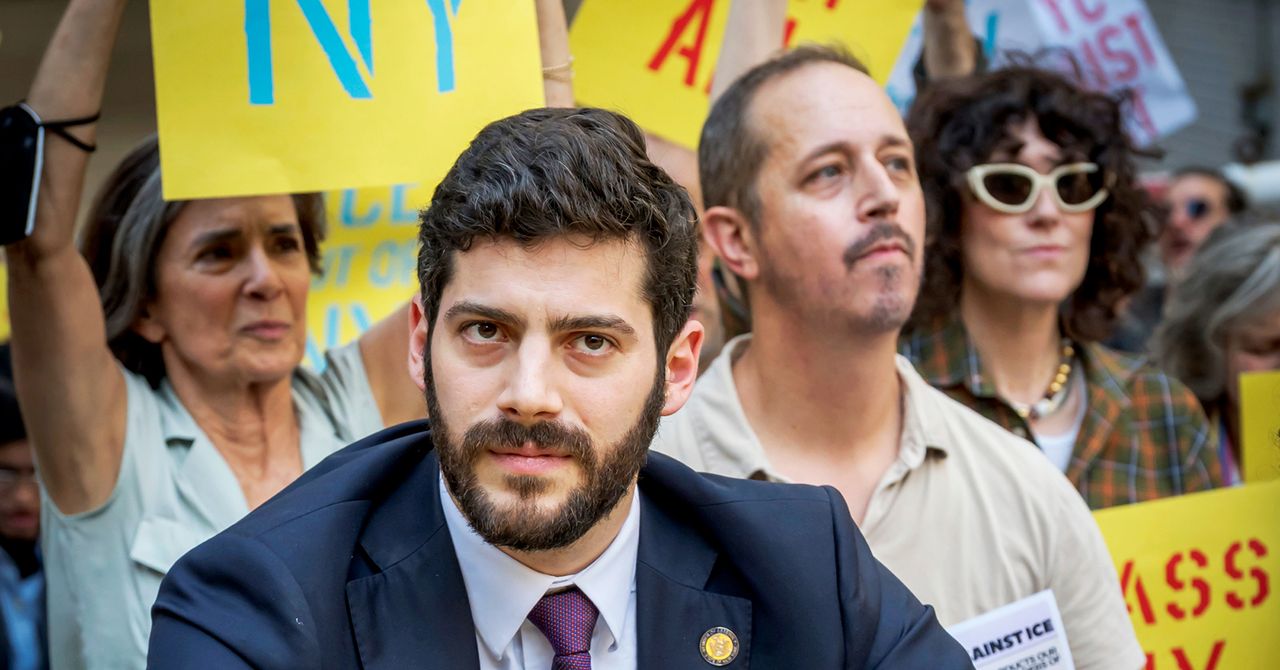“I stand up for your right to be religious. But please know that you’re wrong … you’re living in a fantasy land, and after you die nothing happens, stop being a fucking child.” The words of Jim Jefferies there, the riotous Australian-American comedian whose work delights in smashing taboos, offending and outraging, saying the unsayable. Sex, politics, religion, faeces: nothing is beyond the pale. And as such, there was a good deal of expectation over his headline set at the inaugural Riyadh comedy festival in Saudi Arabia, which came to an end on 9 October. What sacred cows would he slay? Who would feel the wrath of his cold, veiny truth?
Alas, Jefferies appeared to have been disinvited from the Riyadh comedy festival after comments he made on a recent podcast about the murder of Jamal Khashoggi. Even though the gist of said comments was that he wasn’t too fussed about the killing either way. “Unfortunate, but not a fucking hill that I’m going to die on,” were his exact words. To no avail. Cancelled again, this time by one of the richest regimes on Earth. These days, you can’t even describe the extrajudicial murder of a journalist in an embassy as unfortunate. What kind of woke hellscape are we creating for our children?
Happily, many more discreet comedians have managed to pass the government vetting process. Jimmy Carr, Louis CK, Jack Whitehall, Omid Djalili, Kevin Hart, Dave Chappelle, Pete Davidson: they tried to make them go to Riyadh, and they all said yes, yes, yes. The lineup, predictably, is overwhelmingly male. Some of the appearance fees have reportedly run to seven figures. And of course what the Saudis are getting for their money is not simply words but silence, not simply performance but moderation. Welcome to comedy in the age of the autocrats: a procession of paid court jesters who know exactly who is writing their cheques.
“The royals loved the show,” the US comic Bill Burr reflected on his experience. And frankly we can only applaud the bravery of a comedian prepared to unleash his edgiest material on an unprimed audience. The “gay gym” routine, for example, in which Burr so eloquently encapsulates the quandary of a straight man working out in a gym full of gay men, afraid to make eye contact in case one of them gets the wrong idea. Making fun of gay people? In Saudi Arabia of all places? What a brave, brave boy.
We can assume, similarly, that Chappelle’s cache of material poking fun at trans people went down like a US-made F-15 Eagle over a Houthi-controlled area of Yemen during the Saudi-Iran proxy war. And yet, understandably, there were areas where even these brave messengers of truth feared to tread. A leaked contract issued to performers outlined topics that would be deemed unacceptable to the hosts. Jokes about Saudi Arabia itself were strictly off-limits: its royals, its legal system, its government. Any religious material was a no-go. Presumably, too, the country’s human rights record.
Which feels slightly incongruous, given the fact that so many of the festival’s performers pride themselves as advocates of free speech. Carr, for example, has called himself “a free speech absolutist”, which is certainly a very noble way of describing what he does for a living. Chappelle has long railed against a cultural consensus that prevents him from telling the jokes he really wants to tell while – confusingly – also allowing him to tell those very same jokes to packed arena audiences every year.
But of course it is not hard to divine the true motivations of the new Saudi court jesters. By and large, these performers are established, household-name comedians, already financially secure and simply leveraging their reputation in pursuit of another lucrative payday. A few of them have even been helpfully explicit in this regard. As Davidson explained: “I see the number, and I go: ‘I’ll go’.” The more interesting side of the equation is what the Saudis think they are getting out of it.
Because the point that has been overlooked in much of the accompanying commentary is that Saudi Arabia boasts its own rich and active comedy scene, albeit one that rarely lives on the lit stage. Some of the better-known Saudi comics – Amy Roko, Hisham Fageeh, Bader Saleh – are stars of YouTube and TikTok. Naturally they operate within strict constraints, confine themselves to culturally appropriate material. Saudi humour also lives in late-night cafes, in WhatsApp groups and voice notes, on the less regulated corners of the internet and shielded by multiple layers of irony and deniability. Sometimes, this leads to mortal danger: in June a Saudi journalist called Turki al-Jasser was executed for allegedly running a satirical X account critical of the regime.
The Russian literary theorist Mikhail Bakhtin deployed the term “carnivalisation” to describe the disarming characteristic of laughter: its ability to dissolve conventions, social norms and traditional hierarchies of power. Comedy derives from the revelation of challenging established truth, and in so doing exposing its vulnerability, its dissonance from reality. But what exposure is realistically possible at a festival organised by state decree, where tickets cost up to £200, where performers are given five-star treatment and given a list of proscribed topics?
In a way, Riyadh’s investment in comedy can be seen as an ambitious but ultimately doomed attempt by the Saudi government to buy the kind of authentic grassroots culture it is unable to produce for itself. Doomed because ultimately the very materials that produce good comedy – irreverence, human ingenuity, artistic freedom, intellectual courage, a sense of common shared values – are anathema to the dictatorship. This is in essence the equivalent of the Abu Dhabi Louvre, the Qatar World Cup, the gold-plated Oval Office. You can buy comedians, but you can’t buy a sense of humour.
Writing in the Guardian, Djalili defended his participation on the basis that it was “about sharing laughter … a chance for cultural exchange as a force for social transformation”. But how much of this laughter truly escapes the walls of the theatre, beyond the brightly lit plazas of Boulevard City, into the degradation and exploitation beyond? What kind of social transformation is possible when only a privileged few are in on the joke?
The American comedian Sinbad once famously observed that “comedians are funnier when they’re riding the bus”. And perhaps both Saudi Arabia and its hired entertainers are labouring under a kind of convenient delusion. The naivety of the Saudi government in imagining that comedy can whitewash its many crimes is matched only by the naivety of the comedians, some of whom genuinely believe their presence is a kind of cultural bridge, a force for positive change.
Of course art can change minds – change worlds – but only if the will to do so truly exists. Or, as a world-renowned standup comedian almost put it: I stand up for your right to do standup comedy in a medieval autocracy. But please know that you’re wrong. You’re living in a fantasy land, and after you leave nothing happens. So, you know. Stop being a fucking child.
after newsletter promotion
-
Jonathan Liew is a Guardian columnist
-
Do you have an opinion on the issues raised in this article? If you would like to submit a response of up to 300 words by email to be considered for publication in our letters section, please click here.


